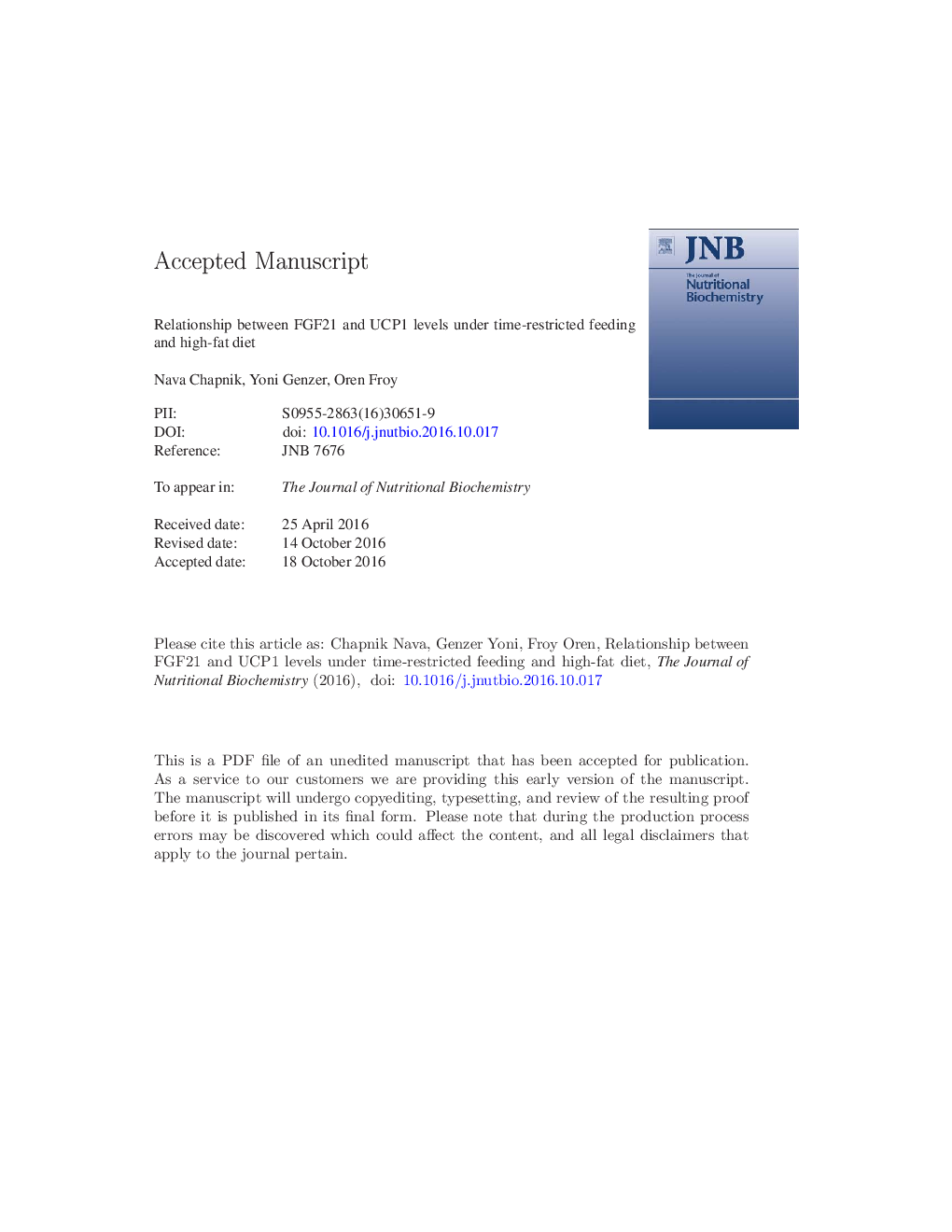| Article ID | Journal | Published Year | Pages | File Type |
|---|---|---|---|---|
| 5512923 | The Journal of Nutritional Biochemistry | 2017 | 24 Pages |
Abstract
Fibroblast growth factor 21 (FGF21) exhibits a circadian oscillation, and its induction is critical during fasting. When secreted by liver and skeletal muscle, FGF21 enhances thermogenic activity in brown adipose tissue (BAT) by utilizing uncoupling protein 1 (UCP1) to dissipate energy as heat. Recently, it has been reported that UCP1 is not required for FGF21-mediated reduction in body weight or improvements in glucose homeostasis. As the relationship between FGF21 and UCP1 induction in tissues other than BAT is less clear, we tested the effect of restricted feeding (RF) and high dietary fat on FGF21 circadian expression and its correlation with UCP1 expression in liver and white adipose tissue (WAT). High dietary fat disrupted Fgf21 mRNA circadian oscillation but increased its levels in WAT. RF led to increased liver FGF21 protein levels, whereas those of UCP1 decreased. In contrast, WAT FGF21 protein levels increased under high-fat diet, whereas those of UCP1 decreased under RF. In summary, FGF21 exhibits circadian oscillation, which is disrupted with increased dietary fat. The relationship between FGF21 and UCP1 levels depends on the tissue and the cellular energy status.
Keywords
Related Topics
Life Sciences
Biochemistry, Genetics and Molecular Biology
Biochemistry
Authors
Nava Chapnik, Yoni Genzer, Oren Froy,
